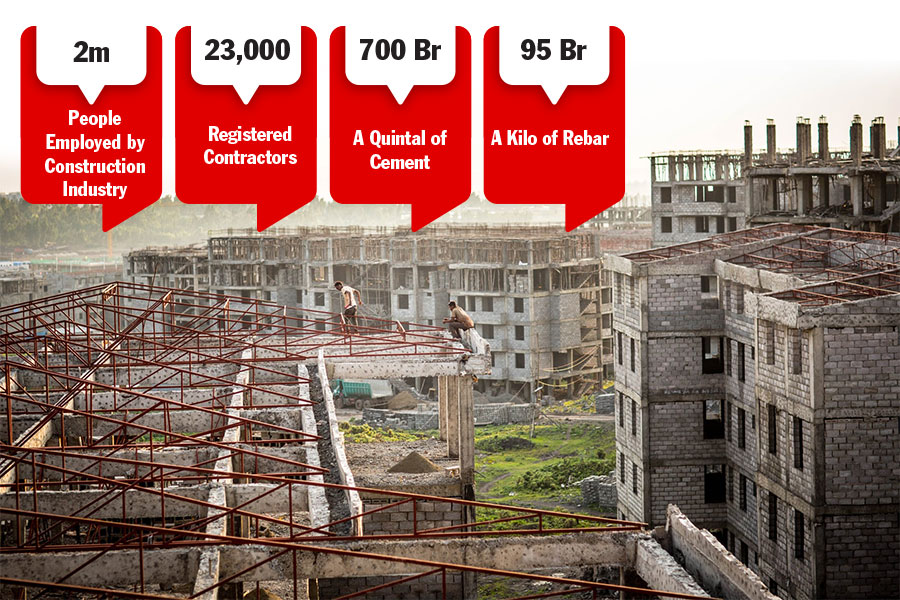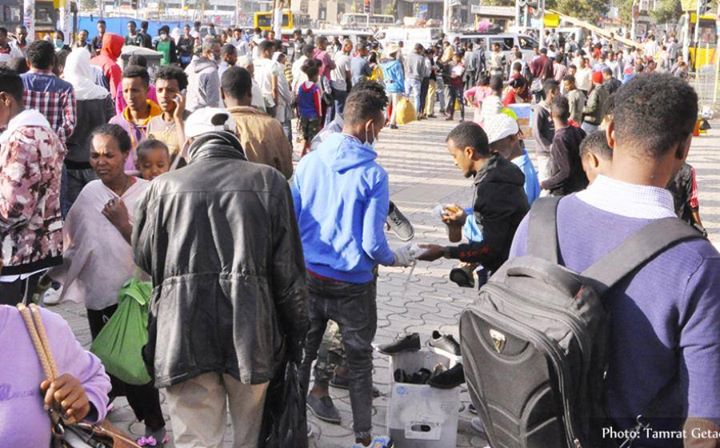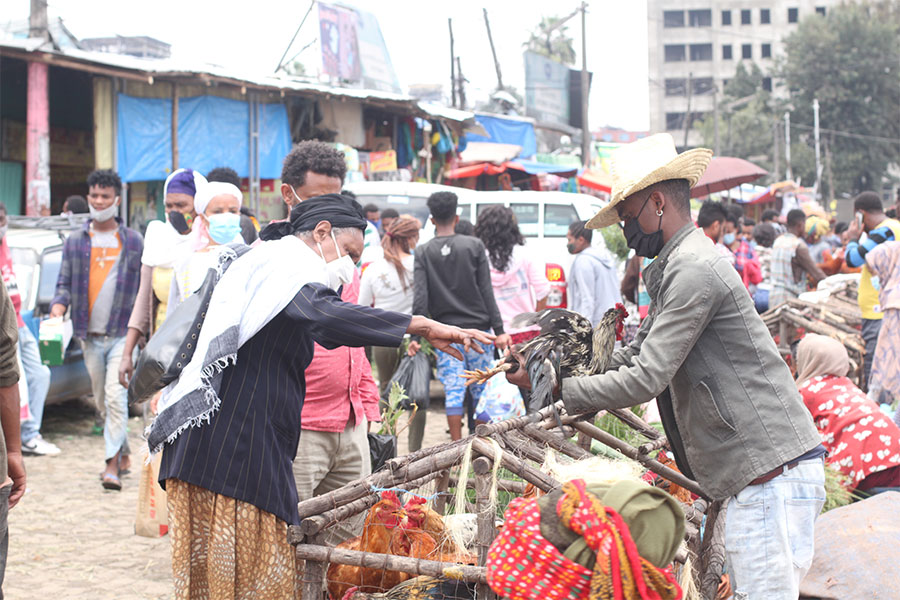
Fortune News | Feb 19,2022
Jun 15 , 2024
By Dawit A. Haylemariam
The real value of the federal budget before Parliament is considerably less impressive when inflation is accounted for. A substantial increase in public investment is crucial for the economy's accelerated recovery and the restoration of a high-growth path to achieve national development priorities. Dawit A. Haylemariam (dawitayele85@gmail.com), an economist and development planner at Gropwth Capital Analytics, argues that the government would rather look beyond nominal figures and focus on meeting the real economic needs to foster sustainable growth.
The federal government has unveiled a budget of 971.2 billion Br for the 2024/25 fiscal year, a leap from the previous year's allocation by 25pc. The increase represents a historic milestone as the federal budget reaches the one trillion Birr mark for the first time. However, it is essential to differentiate between its nominal and real values to grasp the full implications of the budget before Parliament for legislative pass.
The nominal budget represents the total amount allocated without accounting for inflation. The budget for the incoming budget year is a staggering 506pc larger than the federal government's budget a decade ago. The substantial increase suggests a notable expansion in the state's capacity to mobilise resources for economic development and social programs. However, the real budget, which adjusts for inflation and provides a more accurate measure of purchasing power, tells a different story.
Using the GDP deflator to account for changes in the price level, the real value of Ethiopia's budget shows a modest increase of just 14pc in the decade from 2014/15. This adjustment is crucial as it reflects the budget's real economic impact over time. Examining the disparity between nominal and real budget values over the years is illuminating.
The nominal budget demonstrates a steep upward trajectory, especially in recent years, reflecting considerable increases in government spending. The rise is particularly evident from 2018/19 onwards. Conversely, the real budget line is much flatter. Although there is some growth, it is considerably less pronounced than the nominal budget, displaying the impact of inflation. Despite reaching the milestone of one trillion Birr, this year's budget is lower than five years ago in real terms, falling by 21pc compared to the 2019/20 budget.
The trend reveals that despite nominal increases, the budget's actual purchasing power has improved only modestly. The widening gap between nominal and real budget lines shows the growing influence of inflation, emphasising the necessity of adjusting for it when evaluating the actual economic value of public budgets.
Further complicating the budgetary landscape is the allocation of recent government spending.
Public spending has increasingly focused on recurrent expenditures such as debt servicing, humanitarian spending, and defence, resulting in a precipitous decline in capital investment, which has plummeted to a historic low of three percent of GDP. The reduction severely undermines the country's long-term economic growth prospects. Despite their critical role in enabling sustainable development, public investments in vital sectors such as education, healthcare, and infrastructure have been shirked.
As the country attempts to find its way out of the highly destructive conflicts across its regional states, recovery will require a boost in investment. The path to recovery and sustainable growth demands reversing this downward trend in capital investment and re-prioritising expenditure towards sectors that can drive long-term development.
Beyond the impressive headline figures, there is an urgent need to concentrate on strategic investments that address the economy's pressing needs. The government must explore effective strategies to mobilise resources, including leveraging international aid, encouraging private sector involvement, and enhancing fiscal policies to boost revenue generation. By prioritising and restructuring public investment, it can ensure its economic growth is revitalised and sustained in the long term.
PUBLISHED ON
Jun 15,2024 [ VOL
25 , NO
1259]


Fortune News | Feb 19,2022

Covid-19 | Apr 03,2020

Fortune News | Nov 04,2023

Radar | Oct 15,2022

My Opinion | Dec 24,2022

Radar | Apr 30,2024

Radar | Mar 02,2024

Commentaries | May 07,2022

Commentaries | Aug 14,2021

Agenda | Sep 11,2020

My Opinion | 131548 Views | Aug 14,2021

My Opinion | 127903 Views | Aug 21,2021

My Opinion | 125879 Views | Sep 10,2021

My Opinion | 123510 Views | Aug 07,2021

Dec 22 , 2024 . By TIZITA SHEWAFERAW
Charged with transforming colossal state-owned enterprises into modern and competitiv...

Aug 18 , 2024 . By AKSAH ITALO
Although predictable Yonas Zerihun's job in the ride-hailing service is not immune to...

Jul 28 , 2024 . By TIZITA SHEWAFERAW
Unhabitual, perhaps too many, Samuel Gebreyohannes, 38, used to occasionally enjoy a couple of beers at breakfast. However, he recently swit...

Jul 13 , 2024 . By AKSAH ITALO
Investors who rely on tractors, trucks, and field vehicles for commuting, transporting commodities, and f...

Jun 28 , 2025
Meseret Damtie, the assertive auditor general, has never been shy about naming names...

Jun 21 , 2025
A well-worn adage says, “Budget is not destiny, but it is direction.” Examining t...

Jun 14 , 2025
Yet again, the Horn of Africa is bracing for trouble. A region already frayed by wars...

Jun 7 , 2025
Few promises shine brighter in Addis Abeba than the pledge of a roof for every family...

Jun 29 , 2025
Addis Abeba's first rains have coincided with a sweeping rise in private school tuition, prompting the city's education...

Jun 29 , 2025 . By BEZAWIT HULUAGER
Central Bank Governor Mamo Mihretu claimed a bold reconfiguration of monetary policy...

Jun 29 , 2025 . By BEZAWIT HULUAGER
The federal government is betting on a sweeping overhaul of the driver licensing regi...

Jun 29 , 2025 . By NAHOM AYELE
Gadaa Bank has listed 1.2 million shares on the Ethiopian Securities Exchange (ESX),...